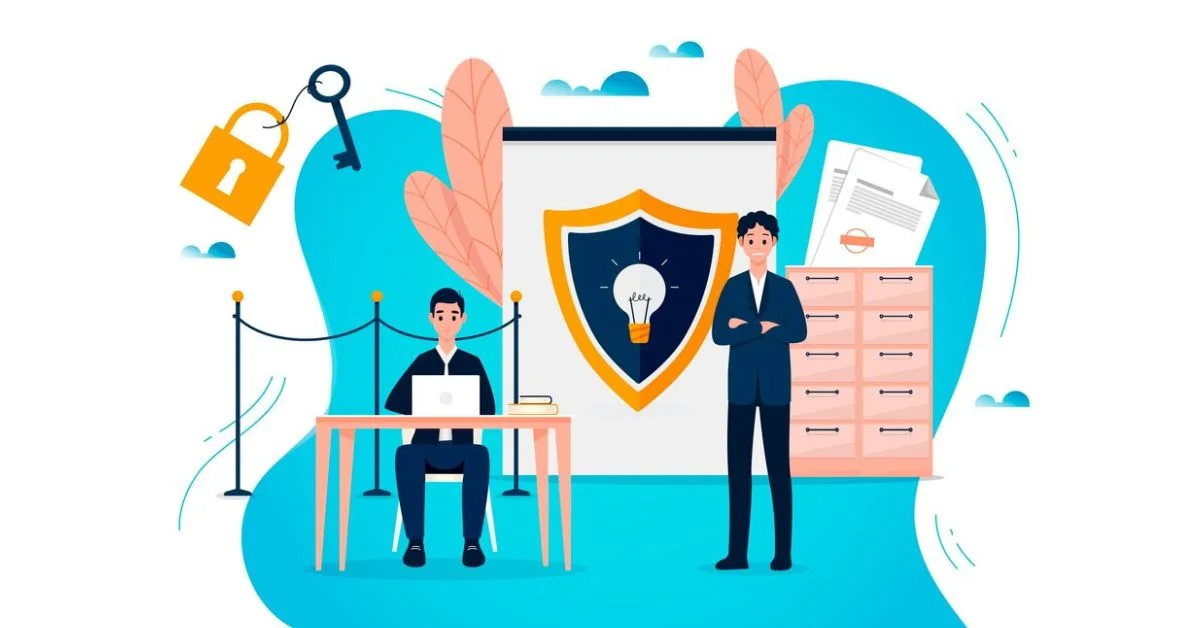EDUCATION
How to Support Your Child’s Learning at Home

Supporting your child’s learning at home can significantly boost their academic success. According to the Education Endowment Foundation, parental involvement in learning can lead to significant improvements in a child’s educational outcomes. [A1] However, many parents in the UK struggle with balancing work, home responsibilities, and providing adequate support for their children’s education. This article will provide practical tips on how to effectively support your child’s learning at home.
1. Create a Dedicated Study Space
One of the most effective ways to support your child’s learning at home is by creating a dedicated study space. This space should be quiet, well-lit, and free from distractions. It could be a corner of a room or a small desk in a quieter area of the house. The goal is to have a consistent place where your child knows it’s time to focus on their studies. Having a designated study area helps children establish a routine and mentally prepare for learning. It also signals to them that their education is important and valued.
Equip this space with necessary supplies such as pens, pencils, paper, and a comfortable chair. Ensure that the space is organised and that your child knows where to find their materials. An organised, clutter-free environment can significantly enhance concentration and productivity.
2. Hire an Online Tutor for Extra Support
Hiring a reputable online tutor in the UK can provide your child with the personalised support they might need. Online tutors can help reinforce school lessons, clarify doubts, and provide additional learning resources. This can be especially beneficial if you find it challenging to help your child with specific subjects. An experienced tutor can adapt their teaching methods to suit your child’s learning style, making complex topics more understandable.
Most reputable online tutors in UK offer flexible scheduling, which can fit around your family’s routine. When choosing an online tutor, look for those with good reviews and qualifications. It’s also beneficial to have an initial session to see if the tutor’s teaching style matches your child’s learning preferences. With the right tutor, your child can gain confidence in their abilities and improve their academic performance.
3. Establish a Consistent Daily Routine
Consistency is key to effective learning. Establishing a daily routine that includes specific times for studying, breaks, and leisure activities can help your child manage their time better. A structured routine provides a sense of stability and predictability, which is essential for young learners. It helps children know what to expect and when, reducing anxiety and promoting better focus during study times.
Start by setting regular study hours that align with your child’s natural rhythms. Some children may be more alert and focused in the morning, while others may do better in the afternoon. Include short breaks to allow them to rest and recharge. Ensure that there is a balance between academic activities and free time, allowing your child to relax and engage in hobbies they enjoy. Consistency in the routine will eventually help your child develop good study habits and improve their time management skills.
4. Encourage a Love for Reading
Reading is a fundamental skill that underpins learning in all subjects. Encouraging your child to read regularly can significantly improve their vocabulary, comprehension, and critical thinking skills. Make reading a fun and enjoyable activity by choosing books that match their interests. Whether it’s adventure stories, mysteries, or non-fiction, finding the right genre can spark their enthusiasm for reading.
Create a reading routine, such as setting aside time each evening for family reading. You can also discuss the books with your child, ask questions about the story, and encourage them to share their thoughts. Visiting the local library or setting up a small home library can also motivate them to read more. By fostering a love for reading, you are helping your child develop essential skills that will benefit them throughout their education.
5. Get Involved with Homework and Assignments
Actively participating in your child’s homework and assignments is another effective way to support their learning at home. Show interest in their work and be available to help with difficult tasks. This involvement not only reinforces the material they are learning but also demonstrates that you value their education.
Review their homework regularly and provide constructive feedback. This helps your child understand their mistakes and learn how to correct them. Encourage them to explain their thought process and how they arrived at their answers. This not only improves their understanding but also enhances their communication skills. If you encounter a subject you’re unfamiliar with, don’t hesitate to look up information together or seek additional resources.
6. Foster a Positive and Encouraging Learning Environment
Creating a positive and encouraging learning environment at home can significantly impact your child’s motivation and attitude towards learning. Encourage a growth mindset by praising effort rather than just results. Celebrate their achievements, no matter how small, to build their confidence and self-esteem.
Make learning a positive experience by showing enthusiasm and curiosity about the subjects your child is studying. Ask questions, engage in discussions, and show that learning is a lifelong process. Avoid putting too much pressure on grades or perfection, which can lead to anxiety and a negative attitude towards learning. Instead, focus on the effort and progress your child is making.
7. Maintain Regular Communication with Teachers
Maintaining regular communication with your child’s teachers is crucial for supporting their learning at home. Teachers can provide valuable insights into your child’s progress, strengths, and areas that need improvement. Attend parent-teacher meetings, and don’t hesitate to reach out to teachers with any concerns or questions.
Regular communication helps you stay informed about your child’s academic performance and allows you to address any issues promptly. It also shows your child that you are engaged in their education and that you value the teacher’s role in their learning journey. Building a strong partnership with teachers can lead to better support and resources for your child’s education.
8. Promote Healthy Habits for Better Learning
Healthy habits are essential for effective learning. Ensure your child gets a balanced diet, regular physical activity, and sufficient sleep. These factors contribute to better concentration, memory, and overall well-being, which are crucial for academic success.
A nutritious diet provides the energy and nutrients needed for brain function and growth. Encourage your child to engage in physical activities, which can reduce stress and improve focus. Establish a regular bedtime routine to ensure they get enough sleep, as lack of sleep can negatively impact cognitive function and learning. By promoting healthy habits, you are supporting your child’s ability to learn and perform well in their studies.
Supporting your child’s learning at home is a rewarding and impactful way to enhance their academic success. By creating a dedicated study space, hiring a reputable online tutor, establishing a consistent routine, leveraging online resources, encouraging a love for reading, getting involved with homework, fostering a positive learning environment, maintaining communication with teachers, promoting healthy habits, and integrating real-world learning opportunities, you can play a significant role in your child’s education. Implement these practical tips to help your child thrive academically and develop a lifelong love for learning. Your involvement and support can make a lasting difference in their educational journey.
EDUCATION
Inside the Scrubs: Nurse’s Journey

Nursing is a dynamic and rewarding profession that demands a great deal of compassion, technical skill, and resilience. Every day, nurses face challenges ranging from managing patient care to keeping up with rapid advancements in medical technology. An integral step in this journey is passing the National Council Licensure Examination (NCLEX), a pivotal exam that assesses a nurse’s readiness to practice safely and effectively.
The Path to Becoming a Nurse
To embark on a nursing career, individuals must first complete an educational program suited to their career goals. Options include a diploma in nursing, an Associate Degree in Nursing (ADN), or a Bachelor of Science in Nursing (BSN).
Each pathway offers a unique blend of practical training and theoretical knowledge. For those aiming for a comprehensive education with better long-term career prospects, a BSN is advisable, as it opens doors to advanced practice roles and higher earning potential.
The NCLEX is crucial for obtaining licensure as a registered nurse (RN) or licensed practical nurse (LPN). This exam tests candidates on their knowledge and ability to make sound clinical judgments in various healthcare scenarios. Using NCLEX exam questions during study preparation can help candidates familiarize themselves with the types of scenarios they may encounter. The latest updates to the NCLEX focus on enhancing the assessment of clinical judgment skills, ensuring that nurses are well-prepared to meet the demands of modern healthcare settings.
Daily Life of a Nurse
Nurses often begin their day by checking patient charts and planning care routines. Depending on their workplace, such as a hospital, clinic, or community center, the specifics of these routines can vary significantly. Tasks typically include administering medications, collaborating with other healthcare professionals, and providing direct patient care through assessments and treatments.
Nursing can be physically demanding and emotionally draining, often requiring long hours and the ability to manage high-stress situations. However, the profession is also incredibly rewarding, offering the chance to make a significant impact on patients’ lives daily. Nurses often cite the personal connections with patients and the satisfaction of knowing they are making a difference as key rewards of their profession.
Key Skills and Qualities of Successful Nurses
Successful nurses embody a mix of hard and soft skills that enable them to handle the diverse demands of the healthcare field effectively.
Essential Skills
- Clinical Competence: Proficient in performing medical procedures and delivering patient care based on the latest health standards.
- Critical Thinking: Ability to make quick, informed decisions regarding patient care.
- Communication: Strong verbal and written skills for effective interaction with patients, families, and healthcare teams.
Personal Qualities
- Compassion: A deep empathy for patients and their conditions.
- Resilience: The strength to cope with challenging situations and emotional stress.
- Adaptability: Flexibility in handling the unpredictable nature of healthcare settings.
Advancement and Specialization Opportunities
Nurses have vast opportunities to advance their careers by specializing in different fields of medicine. Specialties like pediatrics, oncology, geriatrics, and critical care require specific skills and knowledge that are typically gained through further education and clinical experience.
Continuing Education and Certifications
Continuing education is crucial for nurses looking to advance in their careers. Additional certifications in areas such as acute care, anesthesia, or family practice not only expand a nurse’s skill set but also improve their career prospects and potential earnings.
Nurses have access to a wide array of resources that support their professional growth and well-being. Organizations such as the American Nurses Association (ANA) and the National League for Nursing offer networking opportunities, professional development, advocacy, and up-to-date industry information.
Many institutions and professional bodies offer courses that help nurses stay current with medical advancements and maintain licensure.
Support from colleagues through mentorship programs and online communities can provide emotional backing and career guidance.
NCLEX Preparation Resources
Free NCLEX practice tests are invaluable resources for graduates preparing for licensure. Websites like MedicalHero.com offer practice questions and simulations that mimic the format and rigor of the actual exam. By leveraging these skills, opportunities, and resources, nurses can not only thrive in their current roles but also pave the way for future advancements in their careers.
LAW
Strategic Trust Planning for Fortified Asset Protection

Table of Contents
- Key Takeaways
- Comprehensive Overview of Asset Protection Trusts
- Deciphering the Legal Framework Surrounding Trusts
- Best Practices for Establishing Trusts
- Selecting the Right Assets for Your Trust
- Additional Advantages of Trust Formation
- Navigating the Considerations and Limitations of Trusts
- Why Professional Advice is Critical in Trust Management
- The Lasting Significance of Trusts in Asset Management
Key Takeaways
- Trusts are practical tools for creating a barrier against creditors and safeguarding your assets.
- Tailoring your trust according to state-specific laws and asset types is necessary for it to serve its purpose fully.
- While trusts provide numerous benefits, they also have certain restrictions that must be prudently evaluated.
- Professional legal and financial advice is paramount in navigating the complexities inherent in trust management.
Comprehensive Overview of Asset Protection Trusts
Domestic Asset Protection Trusts strike a balance between asset protection and flexible control. Adequate asset protection is proactive and comprehensive. A solid plan can ensure that assets remain secure under the trust’s guidelines. Robust asset protection strategies integrated with estate planning goals can achieve comprehensive security for financial legacies.
Deciphering the Legal Framework Surrounding Trusts
Trusts are legal arrangements that protect assets. To be effective, they must comply with complex laws that vary across states and change over time. A trustee with expertise and integrity plays a critical role in managing trusts, balancing compliance with legal requirements, and managing assets. The most important thing is that the trustee’s actions aim to preserve and enhance the value of the trust assets for the beneficiaries.
Best Practices for Establishing Trusts
Building trust requires a personalized approach considering an individual’s financial situation and goals. Choosing the right trust and accurately funding it is crucial for its effectiveness. Trusts must adhere to legal standards and be executed correctly, requiring the guidance of legal professionals. Mistakes in the trust creation process can have severe consequences, emphasizing the need for thorough preparation and compliance with legal requirements.
Selecting the Right Assets for Your Trust
A customized strategy is required to protect various assets through a trust. This strategy should cater to the specific protection needs of each asset type. Transferring assets into a trust should be approached carefully to ensure adequate protection within the trust’s structure.
Additional Advantages of Trust Formation
Trusts offer advantages for financial and estate planning. They protect assets, minimize estate taxes, maintain family privacy, and control wealth distribution. Trusts provide peace of mind by reducing administrative burden and ensuring that the legacy left behind reflects the grantor’s intentions for their family’s future.
Navigating the Considerations and Limitations of Trusts
Trusts offer benefits but also have limitations. Laws restrict access and control over trust assets, which may be challenging for those used to manage assets directly. Trusts may have stipulations on distributions, investments, and beneficiary rights, which should align with the grantor’s goals. Irrevocable trusts offer protection but require the grantor to relinquish control over assets. Finding the right balance between power and safety is crucial when considering an irrevocable trust as part of an asset protection strategy.
Why Professional Advice is Critical in Trust Management
Trust law is complex and requires expert guidance for trusts and estate planning. Professionals in this field ensure compliance with legal statutes, protect assets, and meet wealth management goals. Their advice is essential for drafting the trust document, selecting a trustworthy trustee, and strategically funding the trust.
The Lasting Significance of Trusts in Asset Management
Trusts are essential for wealth preservation and estate planning. Domestic Asset Protection Trusts provide specialized security for individual needs and long-term objectives. Trusts offer a regulated structure for managing wealth with foresight and intention. Although complex, a well-devised trust strategy can be highly beneficial. Professional expertise and strategic planning can turn trusts into a cornerstone of financial resilience and legacy building.
LAW
A detailed guide on Tax refund for tourists’ schemes in the UAE

While staying in the UAE, tourists have the opportunity to claim a refund on the Value Added Tax (VAT) for goods they purchase. This initiative was elucidated by the Federal Tax Authority in 2018. This article serves as a detailed guide on the VAT refund schemes available to tourists in the UAE.
Whether you are a visitor exploring the country or delving into business and career prospects, seeking assistance from VAT Registration UAE’s tax experts is always advisable. The VAT refund process for tourists in the UAE operates through an electronic system, which was established following the implementation of VAT by the FTA.
It is important to note that this refund scheme solely pertains to traders registered under the “Tax Refund for Tourists Scheme.” Only those affiliated with this scheme are eligible to receive VAT refunds. Understanding the procedure for claiming a VAT refund for tourists in the UAE, as well as how travellers can retrieve VAT payments from their accounts, is essential.
The implementation of the tax refund for tourists in the UAE
The tax refund system for tourists in the UAE is subject to particular conditions that dictate when and how refunds can be claimed. These conditions outline the eligibility criteria and important dates for refund requests:
- The retailers participating in the Scheme will be required to initiate refund claims to tourists as of 18th November 2018.
- The overseas tourists can claim their VAT refunds at Abu Dhabi International Airport, Sharjah International Airport or Dubai International Airport as of 18th November 2018.
- Lastly, overseas tourists also have the option to claim their VAT refunds at the land ports and seaports, applicable as of 16th December 2018.
Purchase procedures applicable for VAT refund for tourist schemes in the UAE
The purchase procedure is as follows when a customer intends to purchase from the retailer under the tax refund for tourist schemes:
- Whenever a retailer gets a purchase request from a tourist under the tourist refund scheme, the retailer must perform a check for the following eligibilities: –
- According to clause 3 of Article 68 of the Cabinet Decision No. 52 of 2017 referred thereto, the client is an Overseas Tourist who was present in the State at the time of the Goods purchase and who is present at the retail establishment with purchase receipts.
- When asking for a refund claim form to be issued. The retailer should also ensure that the supply of goods was made within 90 days, not exceeding 90 days from when the issuance of refund documents was requested.
2. The customer and purchase details must be maintained per the details specified by the FTA and the Operator.
3. The required documents must be issued to the customer to claim their VAT refund on exporting the goods.
4. Depending upon the requirement of some goods and their categories, the retailer must ensure that the goods are packed well to ensure smooth handling and delivery to the customer in their home country.
5. Any other conditions, if the retailer should also meet any, to ensure accordance with the agreement approved by the retailer for providing a tax tax-free purchase service.
For any further queries relating to the purchase requirements for tax refunds for tourist schemes in the UAE, you must contact the tax consultant in dubai for their invaluable guidance and support.
Export procedures to be adhered to by the operators for tax refunds for tourist schemes in the UAE
The operators of the tax refund schemes for tourists must ensure that the tourists claiming the refund are for the goods that have been exported within 90 days from the date of supply. If not, then the refund claims must be rejected. He is also supposed to verify that the exported goods and the refund claim align with the criteria the authority agreed upon. Also, if the authority has consented, the Operator can appoint a third party to verify on his behalf. VAT consultants in the UAE are always for any assistance at your service.
Applicable fees and refunds under the tax refund for tourist schemes in the UAE
The authority has been allowed to charge a service fee to the overseas customers as follows-
- An administrative fee of 15% of the total VAT refund amount claimed.
- A fixed fee of AED 4.80 per refund claim.
The Operator can also deduct the fee from the amount that the overseas tourist is supposed to get back as a refund from the FTA. The point to note here is that the cash VAT refund amount will have a cap of AED 10,000 per tourist per day (24 hours).
Also, When an Overseas Tourist claims a refund from a Taxable Person, the tax will not be reimbursed under the Scheme for any claim if the value of the tax-inclusive purchases made from that Taxable Person is not AED 250 or higher.
Any doubts related to fees can be clarified through VAT consultants in the UAE.
Goods that do not fall under the tax refund schemes in the UAE
The following goods are not included in the refund scheme for tourists in the UAE
- The goods or items not carried by the tourists when they leave the country.
- The goods that have been consumed fully or partially in the state of any other implementing state.
- Motor vehicles, aircraft and boats.
Considering the above points, the tourist tax refund guide might look complicated to the visitors. Therefore, they must find some tax consultants in the UAE who can help them solve their queries and guide them in claiming their refund. They will also help you identify the goods eligible for tax refunds under this Scheme.
Engage the Expert Services of VAT Registration UAE
The tax consultants and VAT experts in the UAE, accessible through VAT registration UAE, stand ready to assist you in claiming VAT refunds should you decide to depart the UAE following your vacation. Reach out to us today to gain clarity on the VAT refund process in the UAE, including how tourists can seek refunds on purchases made during their stay. Thus, contact us today and we shall be glad to assist you.

 TECHNOLOGY4 months ago
TECHNOLOGY4 months agoBlog Arcy Art: Where Architecture Meets Art

 ENTERTAINMENT2 weeks ago
ENTERTAINMENT2 weeks agoExploring the Kristen Archives: A Treasure Trove of Erotica and More

 LIFESTYLE4 months ago
LIFESTYLE4 months agoThe Disciplinary Wives Club: Spanking for Love, Not Punishment

 LIFESTYLE2 weeks ago
LIFESTYLE2 weeks agoWho Is Sandra Orlow?

 GENERAL3 days ago
GENERAL3 days ago5 Factors That Affect Tattoo Removal Success

 ENTERTAINMENT8 months ago
ENTERTAINMENT8 months agoYuppow: Your Free Source for Movies and TV Shows

 HOME IMPROVEMENT5 days ago
HOME IMPROVEMENT5 days agoGet Your Grout to Gleam With These Easy-To-Follow Tips

 ENTERTAINMENT1 week ago
ENTERTAINMENT1 week agoKiss KH: The Streaming Platform Redefining Digital Engagement and Cultural Currents












